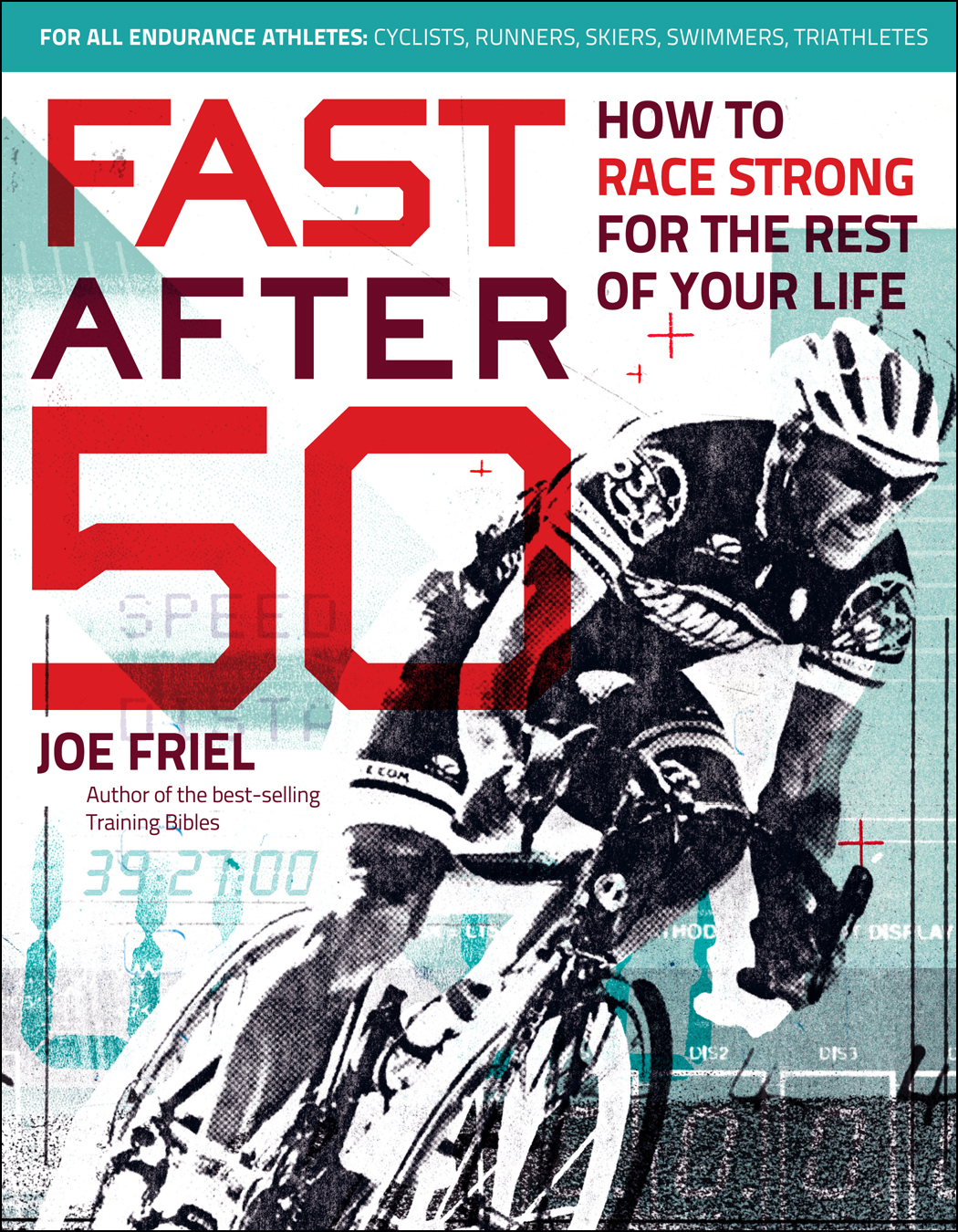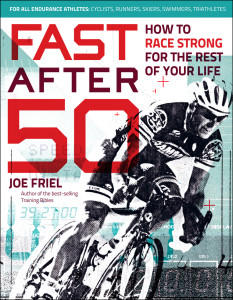Interview with Fast After 50 author

 Athletes set on defying the aging process will want to get their hands on Joe Friel’s Fast After 50. Friel is an endurance coach and author best known for The Triathlete’s Training Bible and The Cyclist’s Training Bible. We reviewed his latest book in the most recent issue of TMC which hits stores next week. We had the chance to pick the author’s brain on some of the book’s key concepts.
Athletes set on defying the aging process will want to get their hands on Joe Friel’s Fast After 50. Friel is an endurance coach and author best known for The Triathlete’s Training Bible and The Cyclist’s Training Bible. We reviewed his latest book in the most recent issue of TMC which hits stores next week. We had the chance to pick the author’s brain on some of the book’s key concepts.
TMC: What is the number one piece of advice you’d give athletes over fifty who are new to competitive running, cycling or swimming?
Joe Friel: Newbies should not be concerned with either how long or how intense their workouts are. Their primary focus should be on the frequency of their exercise. Get out the door every day and do something. You’ll miss some days due to a number of conflicts. Every athlete has these whether pro or Olympian. Missing a workout on occasion is Ok. Just resolve to get out the door tomorrow.
TMC: Nutrition is important for all athletes, but what is the most significant diet-based practice endurance athletes over 50 should follow to avoid weight gain, increase muscle and optimize recovery?
JF: The research is quite clear in indicating that as we get older protein intake becomes increasingly important to performance. It will help to build muscle which is necessary for both health and fitness. This doesn’t mean simply adding more calories in the form of protein. Something needs to be omitted. I’d strongly suggest that should be carbohydrate. Unlike protein (and fat) it’s unnecessary for health and is likely to be converted and stored as body fat due to hormonal changes with age.
TMC: How do older athletes recover differently from their younger counterparts?
JF: Older athletes need to be much more focused on recovery following workouts than do young athletes. The starting place for this emphasis is training periodization. More easy, recovery workouts or days off are needed following hard sessions. The next area of concern in regards to recovery for older athletes is sleep. This is when hormones are released that build fitness. It can’t be shortened to fit “other” stuff into one’s already full daily activities. Get as much sleep as possible every day. It’s not expendable.
TMC: What would you tell an athlete over 50 who is discouraged by a drop in performance from his or her earlier days? Are there mental training tools or tips you would encourage older athletes to follow?
JF: Training declines over time are common with aging athletes. The key as we get older is to slow the decline. It should be on the order of a half of one per cent per year after age 50. An annual test for aerobic capacity (VO2max) is one way to measure this. If the decline is greater than 0.05 per cent per year then the athlete needs to get much more serious about not only training but also lifestyle.
TMC: What is the most significant way an older athlete can avoid falling victim to predetermined misconceptions and limitations about aging and performance?
JF: The best way is to simply not read everything that comes down the pike on the subject of aging. Most all of it is based on misconceptions about aging. Seek direction, first, from aging athletes who have stayed on top of their game. They have figured something out that may prove beneficial. Secondly, read only articles on aging written by experts on the topic, such as scientists who have studied it.


